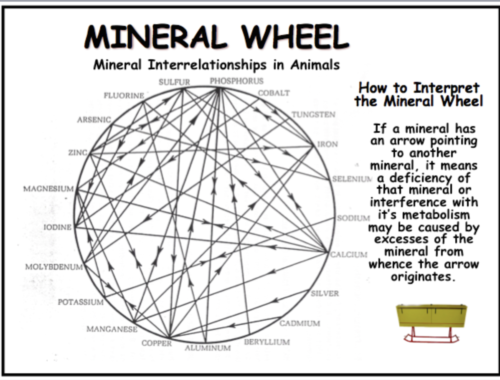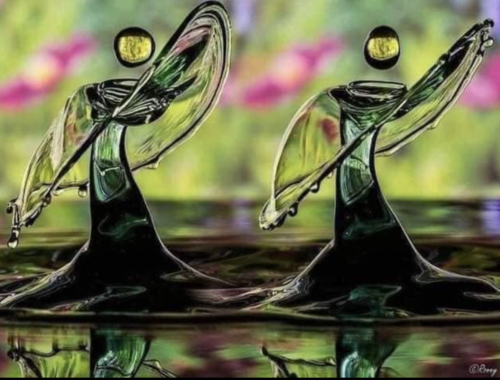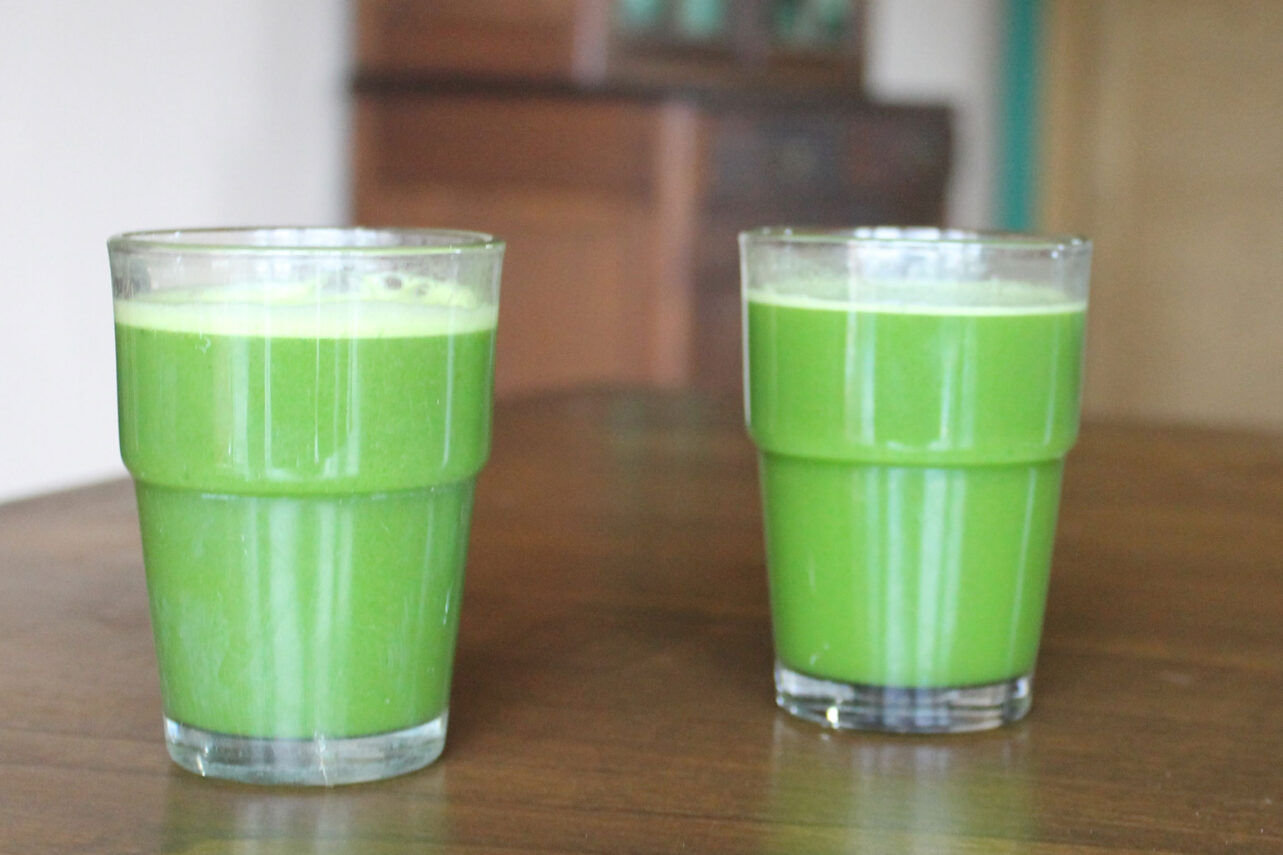Wasp Medicine
Attracting Wasp Venom
A couple of weeks ago (July 2015), I disturbed a wasp nest. Wasps attack immediately when they feel threatened and I was stung 10-15 times on my arm, hand and leg. I couldn’t get away because of the long grass and brambles. It didn’t hurt much initially, so I carried on working. Then I started to feel a ferocious itching and burning in my groin, which I knew was lymph and I decided to head back to the cabin. Before I got back my scalp, palms and the soles of my feet were on fire. Within minutes my whole body was covered in a painful red rash and I jumped in the shower and turned on the cold water to try and give myself an adrenaline boost. It didn’t seem to work.
Dean found an anti-histamine, which I was reluctant to take, but I could see he was worried. By this time, my face was really swollen and the pain was intense. I put me feet in a bucket of cold water and had Dean rub me all over with St John’s Wort oil to try and cool me down. Then my throat started to close and Dean wanted to know if we needed to go to the hospital. I had a moment of fear and thought: take me now or make this go away and the swelling in my throat began to ease and the pain became more bearable. I was still nicely swollen two hours later when Claudius and Michelle showed up, but managed to get out of bed a bit later so we could go out to dinner. It took several days for all the swelling to go completely.
Since then I’ve been wondering why I had such a strong reaction and why did I not want to take the anti-histamine? I don’t like pharmaceuticals and consider them to be more harmful than beneficial in most cases, excepting emergencies; and this was an emergency. I don’t think Sophia set up this experiment with the intention that we should succumb so easily to insect stings either, although poisons definitely have their place. However, histamine is not a poison, it is a neurotransmitter, so why do we need to shut it off?
A neurotransmitter is a chemical that is released by neurons in the nervous system and crosses the synaptic gap between neurons, to be received by another neuron in order to generate a specific reaction. The constant stimulation of neurons causes reactions in the body which are specific to the type of neurotransmitter that is passed. Histamine’s role is to produce an immediate inflammatory response as part of the immune system that comes into action when your body is under attack. Histamine causes the blood vessels to swell, so that white cells can get to the problem area quickly, that sounds like a good thing. Over-reaction, like mine, is considered to be the result of histamine intolerance, due to the body not being able to break down histamine properly. We always have a small amount of histamine circulating in the body and when I was stung, more was released at the site of the the wasp stings, flooding my body.
The exact composition of wasp venom is unknown. From the wasp’s perspective, it stings to paralyse other insects that it wants to eat, or to warn off larger animals like me. Wasps have been around for longer than humans and they are very effective predators, see Wasp Warriors. However, it is not the poison that causes the allergic reaction. Wasp venom contains a protein enzyme called hyaluronidase, which speeds up the dispersion through the body of any injected substance, by reducing the viscosity of hyaluronic acid that cushions the cells and increasing tissue permeability. (Yes, hyaluronidase is used to break down hyaluronic acid based cosmetic fillers after people have had too much of it pumped into their faces to make them look younger!) My allergic reaction was caused by the combination of hyaluronidase and histamine, which generated a systemic inflammatory response and the anti-histamine probably helped in this situation. Adrenaline also stops the production of histamine, which is why people who know they are highly allergic carry Epipens.
But why do I have too much histamine in my body? There are many foods that contain histamine (and these foods are often involved in food allergies) but my intolerance most likely stems from the fact that I was on Zantac for 25 years, because of a stomach ulcer. Zantac/Ranitidene, like its cousins Tagamet and Pepcid is a histamine blocker. It targets the H2 histamine receptors, which are found in the stomach lining, heart, uterus, vascular smooth muscle cells and white blood cells. It stops these cells responding to histamine, so that there is no inflammatory response from food or drink that would normally cause irritation. The body naturally responds by producing more histamine, causing a permanent overload. In addition these drugs, and others, actually deplete the levels of diamine oxidase in the body, which is primarily responsible fro breaking down histamine in the digestive tract. I weaned myself off Zantac in 2010 and have had no pain or bleeds since and I’m able to eat and drink more liberally than I ever was while on Zantac. I now need to look into how to reduce my baseline histamine levels – more on that in another post.
Apparently, most people who get an allergic reaction to wasp stings do not get it for bee stings, or vice versa. It’s one or the other, so that’s a relief!
Then, a year later, I was stung again on my hand, that swelled up like a ballon. It was only a couple of years later, when I was stung yet again – that I began to understand what this was about.
Histamine and Self-sabotage
The last time I was stung, was when I was obsessing about an unpleasant incident with some one, that I could do nothing about. Some one that I had thought of as a friend (not a close friend, but some one I could meet up and have a chat with now and then) had turned against me, for no reason I could understand – because she wanted to, I guess. It was later that night, when the histamine itch came on, that I realised how my unhappiness about this experience was involved in my histamine response.
It came over me in a cool gel-like rush. What is often termed ‘histamine intolerance’ was, in this case at least, a conditioned physiological response to emotional drama. Did it make any difference to the quality of my life whether this person liked me or not? Not a jot. It only made a difference if I gave my attention to it, as if I was at fault. In that moment of realization the heat and itching stopped.
The histamine response and symptoms were very real, but I was causing them myself – and I also recognised it as a pattern inherited from my father, although he was unconscious of it. It took three rounds of wasp stings before my mind/body system was able to process the biochemical/electrical influx in such a way as to be able to change the pattern. The change happened of its own accord in the moment that my internal dialogue stopped.
Everything in nature is conspiring to help human creatures come to the realization of what we are doing and what we are capable of. It might seem like a delusion to think that a wasp sting could be a good thing, until you come to know that the body never lies and through its secretions and electromagnetic signature it is always in communication with nature – our consciousness doesn’t see that because we have been entrained to focus on other things. Once you get it, you begin to participate in the correction process that you, as an individual needs, to get you back on track. Sometimes the medicine hurts, but the learning never disappoints.
Addendum, histamine update:
On 19th July 2024, I got another precision dose of wasp medicine on the left ankle. The left ankle is significant, as a gateway to the yin aspect of the dragon power, See Muffin and the Iberian Dragon.
My ankle swelled up immediately and got very hot and itchy. This time, I used my neutral pendulum to find out which elements of the wasp venom were causing me a problem. I went through the ordinary colours used in dowsing (note: we now use colours in Nature for reference points, leaves, flowers, berried etc. rather than the dowsing colour chart) and I found which colours were counter-clockwise to me, indicating that they were potentially harmful or that my body couldn’t deal with them. I found several. Then I went to histamine, as it is the interaction between histamine and the venom that causes the irritation. Again, several counter.clockwise colours. As soon as I corrected them, just by ‘seeing’ them, the heat and itchiness went. There is still some swelling and stiffness, the next day, but none of the intensity I’ve had in the past, that would usually last a week or more.
I think that the counter-clockwise colour components in my histamine correlated with unconscious emotional imprinting, related to incidents I don’t remember, possibly even lifehood issues, that interfered with the histamine processing. I couldn’t learn from these events, as I didn’t remember anything about them, but they were imprinted in my biochemistry is such a way as to stall my healing/learning.
I then went through other hormones for clearing. More on that later.
House Project One Year Milestone
You May Also Like

Correcting Mineral Imbalances with Magic Wand and Neutral Pendulum
June 30, 2023
Walking Water
January 23, 2023

